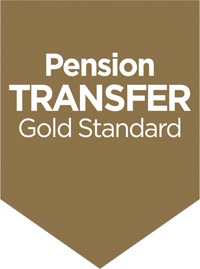ISA'S & Pensions
ISA’S
ISAs first became available on 6th April 1999 and Junior ISAs on 1 November 2011.
Investors are not taxable on income received from ISA savings and investments, and no tax is payable on capital gains arising (capital losses are disregarded). Investment returns do not need to be declared in tax returns and in addition ISA income is ignored when calculating entitlement to personal allowances – for individuals with adjusted net income exceeding £100,000.
The exemption from income tax is contained in Sections 694 to 701 Income Tax (Trading and Other Income) Act 2005, and the exemption from Capital Gains Tax (CGT) is in Section 151 Taxation of Chargeable Gains Act 1992. The detailed rules however are to be found within the ISA Regulations 1998 (SI 1998 No 1870) and subsequent amendments.
The relative simplicity and longevity of ISAs means that they are a core product in the UK savings market and in particular offer an alternative tax efficient investment strategy for those individuals who can no longer benefit from tax relief on their pensions savings having contributed up to their combined annual allowance and carry forward facility.
Budget 2014 announced that from 1 July 2014 ISAs were to be reformed into a simpler product, the New ISA (NISA). All existing ISAs became NISAs and account holders benefited from new flexibility in relation to their accounts, as well as an increased overall subscription limit. NISA savings can be held in cash or stocks and shares in any combination that the saver wishes.
An investor can subscribe to a Cash NISA and a Stocks & Shares NISA in the same year splitting the overall allowance between the two.
The NISA was not a separate scheme. Instead, there remained two types (Cash and Stocks & Shares) and, from 1 July 2014, they operate under amended ISA Regulations.
Now that the NISA changes have bedded in, the remainder of this article will revert to the term ISA (indeed HMRC use the term ISA).
From 6 April 2016, investors can subscribe in each tax year to:
- One cash ISA
- One stocks and shares ISA, and
- One innovative finance ISA
- It is not possible to subscribe to two (or more) cash ISAs, two (or more) stocks and shares ISAs, or two (or more) innovative finance ISAs in the same tax year.
Individual savings accounts (ISAs)
There’s no income tax relief on payments into ISAs, like there is on payments into pensions. However, unlike with a pension, you don’t have to pay any tax on the money you withdraw, as it is exempt from Capital Gains Tax. So with an ISA, you’re paying tax the other way round from a pension (at the beginning, not the end).
You can access your funds more easily than you can a pension – for example, to fund an urgent financial commitment. Obviously, this also means discipline is required to avoid spending your retirement fund early!
However, there are restrictions on how much you can invest annually and higher earners may find these limits too low.
People who are in a position to do so often choose to have a pension and one or more alternative sources of retirement income. If you can afford it, this avoids putting all your eggs into one basket.
Source: www.lovemoney.com/news/21/pensions-for-beginners-all-you-need-to-know
Please note that the information contained in this article and the additional articles provided by the links, is for general guidance only, is not intended to be specific personal advice and does not take into account your personal objectives, financial situation or needs. The information is based on our understanding of current legislation as at October 2016, which may be subject to change in the future. Investments can rise and fall, and you may get back less than you invested.
If you need further information on any of the topics covered in this article, or would like to discuss your personal financial circumstances in confidence, please contact your HFL Financial or phone 01763 261 366.
HFL Advisory Services is a trading name of IWP Financial Planning Ltd which is authorised and regulated by the Financial Conduct Authority. FCA Reference 441359. The FCA does not regulate tax advice.

